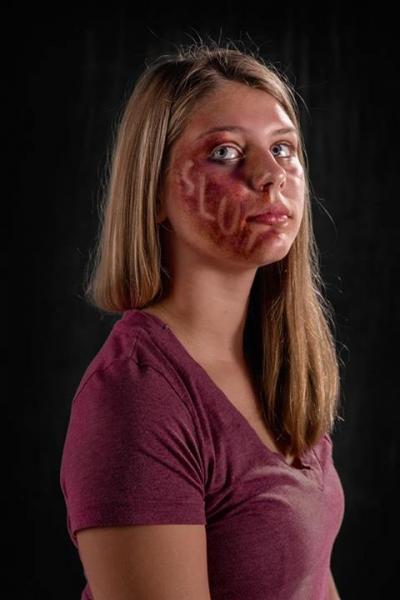What's Your 'Weapon Of Choice?'

A fellow Trojan, who I had been talking to for a year, had originally said I could stay over at his place.
“I don’t care what I said. I lied.”
“It’s 4 am and we are in South Central LA, you are just going to kick me out… Can’t I just sleep on your floor?"
“What are you still doing here… Get the f--- out!”
And so I left.
It took me about forty-five minutes to find a friend’s place to stay near Figueroa, the long street that runs alongside USC's campus and teams with homelessness and 24-hour fast food. I was shocked by how little he cared about my safety, especially after befriending and spending time with me for eleven months, making me feel like a cheap prostitute. And that’s what I looked like, walking down Figueroa at 4:30 am, with black eyeliner streaming down my cheeks.
His actions made me question whether I may have been dealing with “a verbal abuser.”
According to the Violence Prevention Initiative, verbal abuse includes: “recalling a person’s past mistakes, expressing negative expectations, expressing distrust, lying, name-calling, insulting, swearing, withholding important information, unreasonably ordering around,” all of which he would do to me on a regular basis. And because he tried to assert this sense of dominance over me, I felt an obligation to stand up to him, which only resulted in my reacting with similar behaviors and language.
Family Life and Education Specialist Katie Bosch conducted a four-part series on verbal abuse among youth through the University of Nebraska. In her fourth article, “When Words Are Used As Weapons: Verbal Abuse,” Bosch lists “examples of verbal weapons” like countering, withholding, discounting, accusing and blaming, judging and criticizing, undermining, threatening and name calling, ordering and abusive anger.
Messages about verbal abuse are being heard across the globe, since American photographer Richard Johnson launched his “Weapon of Choice” campaign in mid-May of this year. According to the organization's Facebook page, "The Weapon of Choice Project was conceived to provide a visual representation of the emotional damage that can be caused by verbal abuse."
Models were given a list of insults, and chose which ones related most to their own personal experiences. The campaign also seeks to negate common notions about “sticks and stones,” considering “physical abuse and verbal abuse often go hand-in-hand.”
In a phone interview with the Huffington Post, Johnson told reporters, "the overall goal [of Weapon of Choice], in my view, would be to shine a light on the fact that, when we’re focusing on bullying as a society, we focus on actual physical abuse... Before they(abusers) actually choose to put their hands on someone, there’s more verbal abuse leading up to it.”
Johnson also expressed how the role of authoritative figures in verbal abuse needs to be discussed. The project is called “Weapon of Choice” because he believes that “the choice to render emotional harm rather than physical harm is just that: a choice.”
However, emotional abuse can actually lead to the development of victims physically harming themselves, by means of self-injury or addiction in hopes of escape. Some scholars argue that the affects of emotional abuse may actually "be worse" than those of physical abuse, because physical abuse usually occurs in a pattern, while emotional abuse happens daily.
Like physical abuse, many victims of verbal abuse blame themselves. Cindy Southworth, Vice President of the National Network to End Domestic Violence, tells victims of male abusers that they "missed it because he's really smooth, and he knows how to make sure to back off the moment when your instincts start to tell you he's coming on too strong." Many young people don’t know that an estimated 1 in 4 teenage girls in a relationship report enduring repeated verbal abuse, meaning a friend of yours has probably been verbally abused. And you may have too, without knowing, or simply excusing his or her behavior for just having a bad reputation or bad people skills.
After dealing with what my friends told me was “just an asshole,” I realized that this guy’s entitled sense of nature and frat-star status didn’t give him the right to make me feel ashamed for being a journalist, for even uttering the word “black” or for believing in using condoms. He wasn’t "just" some asshole; he used his statuesque figure and chiseled jaw as a weapon, as an excuse, to say and do whatever he pleased, even if it meant demeaning any "hot chick" or unimpressed "dude" who threatened the chances of getting what he wanted.
Now, I can't help but notice when I see spouses or partners battling to control each other, which takes me back to what might have happened if I had stayed over that night with the "get the f-out" guy at USC. And what would have happened if I had frustrated him just enough, causing him to lose the patience to use his words as his weapon of choice.
"Shameless" is a new series by NT Columnist Maya Richard-Craven on shame and social status in the millennial generation. Read more here. Reach Maya here.



